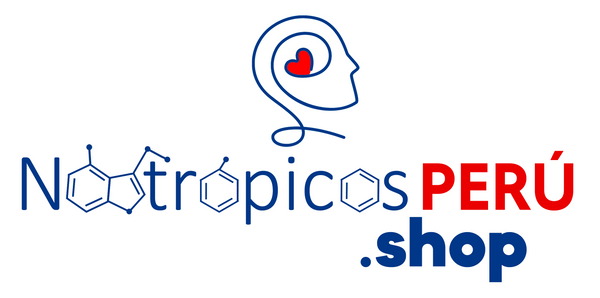Mucuna Pruriens, also known as the velvet bean, is a tropical legume that has been traditionally used in Ayurvedic medicine. One of its most notable components is L-DOPA (levodopa), a direct precursor of the neurotransmitter dopamine.
Why is it considered a nootropic?
It is considered a nootropic due to its ability to improve cognitive function, memory and mood, largely thanks to its influence on dopamine, a neurotransmitter essential in brain functions related to pleasure, motivation and motor coordination. .
Mechanism of action:
The L-DOPA contained in Mucuna Pruriens is directly converted into dopamine in the brain. This transformation is carried out by the enzyme dopa decarboxylase, allowing dopamine to increase in the central nervous system. In turn, dopamine is a precursor to other important neurotransmitters, such as norepinephrine and epinephrine.
Benefits of Mucuna Pruriens (L-DOPA) :
-
Mood improvement :
-
Mood elevation : By increasing dopamine levels, it can generate a feeling of happiness and satisfaction, reducing depressive symptoms.
-
Anxiety reduction : Dopamine is a neurotransmitter that plays a crucial role in controlling emotions and stress responses, which can lead to a reduction in anxiety and an overall improvement in emotional well-being.
-
Cognitive enhancement :
-
Improved concentration and focus : Dopamine is essential to maintain sustained attention on tasks.
-
Favoring short-term memory : Adequate dopaminergic function is linked to the ability to retain and process recent information.
-
Stimulation of creativity : Some studies suggest that dopamine may be related to creativity and idea generation.
-
Motor Health :
-
Support in neurodegenerative diseases : In addition to its use in Parkinson's, it could offer support in other disorders that affect motor skills.
-
Reduction of tremors : L-DOPA can reduce tremors and other motor symptoms related to dopamine deficiencies.
-
Increased libido and male fertility :
-
Improved sexual desire : By influencing dopamine, a neurotransmitter related to pleasure, it can increase libido in men and women.
-
Enhancement of erectile function : Some studies have shown improvements in this area in men with dysfunctions.
-
Stress management :
-
Adaptogen : Mucuna Pruriens can help the body adapt to stress, reducing its negative effects on the body.
-
Increased testosterone :
-
Muscle development : With high levels of testosterone, the muscle hypertrophy process can be favored.
-
Improved post-exercise recovery : Testosterone is linked to muscle repair and regeneration.
-
Antioxidant :
-
Neuronal protection : The antioxidants in Mucuna Pruriens can protect neurons from damage caused by free radicals, preventing or delaying neurodegenerative diseases.
-
Anti-aging : By combating oxidative stress, it could contribute to healthier skin and reduction of premature aging.
-
Glucose regulation :
- Some studies suggest that Mucuna Pruriens may help regulate blood sugar levels, although more research is needed in this area.
Absorption: L-DOPA is better absorbed when consumed on an empty stomach. The presence of certain amino acids in foods can compete with L-DOPA in its absorption in the intestine. It is commonly administered with dopa decarboxylase inhibitors to improve its bioavailability and prevent its premature conversion to dopamine outside the brain.
Adverse Effects and Contraindications :
-
Side effects : May include nausea, vomiting, irregular heartbeat, and hallucinations. In high doses, it can cause involuntary movements.
-
Contraindications : It should not be used by people with heart disease, diabetes, gastric disorders, or those taking antidepressant medications, unless under medical supervision. It may also interact with antihypertensive and antipsychotic medications.
-
During pregnancy and lactation : Its use is not recommended due to the lack of sufficient studies.
More information about Mucuna Prueriens and its dosage: https://nootropicsexpert.com/l-dopa/
References on studies:
[i] Prakash D., Niranjan A., Tewari SK “Some nutritional properties of the seeds of three Mucuna species.” International Journal of Food Sciences and Nutrition . 2001 Jan;52(1):79-82. ( source )
[ii] Amsten A., Wang M., Paspalas C. “Neuromodulation of Thought: Flexibilities and Vulnerabilities in Prefrontal Cortical Network Synapses” Neuron Volume 76, Issue 1, p223–239, 4 October 2012 ( source )
[iii] Jenner P. “Molecular mechanisms of L-DOPA-induced dyskinesia.” Nature Reviews Neuroscience . 2008 Sep;9(9):665-77 ( source )
[iv] Knecht S., Breitenstein C., Bushuven S., Wailke S., Kamping S., Flöel A., Zwitserlood P., Ringelstein EB “Levodopa: faster and better word learning in normal humans.” Annals of Neurology . 2004 Jul;56(1):20-6. ( source )
[v] Uma S., Gurumoorthi P. “Dietary antioxidant activities in different germplasms of Mucuna.” Journal of Medicinal Food . 2013 Jul;16(7):618-24 ( source )
[vi] Bala V., Debnath A., Shill A., Bose U. “Anti-Inflammatory, Diuretic and Antibacterial Activities of Aerial Parts of Mucuna pruriens Linn.” International Journal of Pharmacology 2011 | Volume: 7 | Issue: 4 | Page No.: 498-503 ( source )
[vii] Zecca L., et. Al. “New melanic pigments in the human brain that accumulate in aging and block environmental toxic metals” Proceedings of the National Academy of Sciences USA 2008 Nov 11; 105(45) ( source )
[viii] Yadav SK, Prakash J., Chouhan S., Singh SP “Mucuna pruriens seed extract reduces oxidative stress in nigrostriatal tissue and improves neurobehavioral activity in paraquat-induced Parkinsonian mouse model.” Neurochemistry International . 2013 Jun;62(8):1039-47 ( source )
[ix] Shukla KK, Mahdi AA, Ahmad MK, Jaiswar SP, Shankwar SN, Tiwari SC “Mucuna pruriens Reduces Stress and Improves the Quality of Semen in Infertile Men.” Evidence Based Complement and Alternative Medicine . 2010 Mar;7(1):137-44 ( source )
[x] Knecht S., Breitenstein C., Bushuven S., Wailke S., Kamping S., Flöel A., Zwitserlood P., Ringelstein EB “Levodopa: faster and better word learning in normal humans .” Annals of Neurology . 2004 Jul;56(1):20-6. ( source )
[xi] Rana DG, Galani VJ “Dopamine mediated antidepressant effect of Mucuna pruriens seeds in various experimental models of depression.” Ayu . 2014 Jan;35(1):90-7. ( source )
[xii] Tharakan B., Dhanasekaran M., Mize-Berge J., Manyam BV “Anti-Parkinson botanical Mucuna pruriens prevents levodopa induced plasmid and genomic DNA damage.” Phytotherapy Research . 2007 Dec;21(12):1124-6. ( source )








